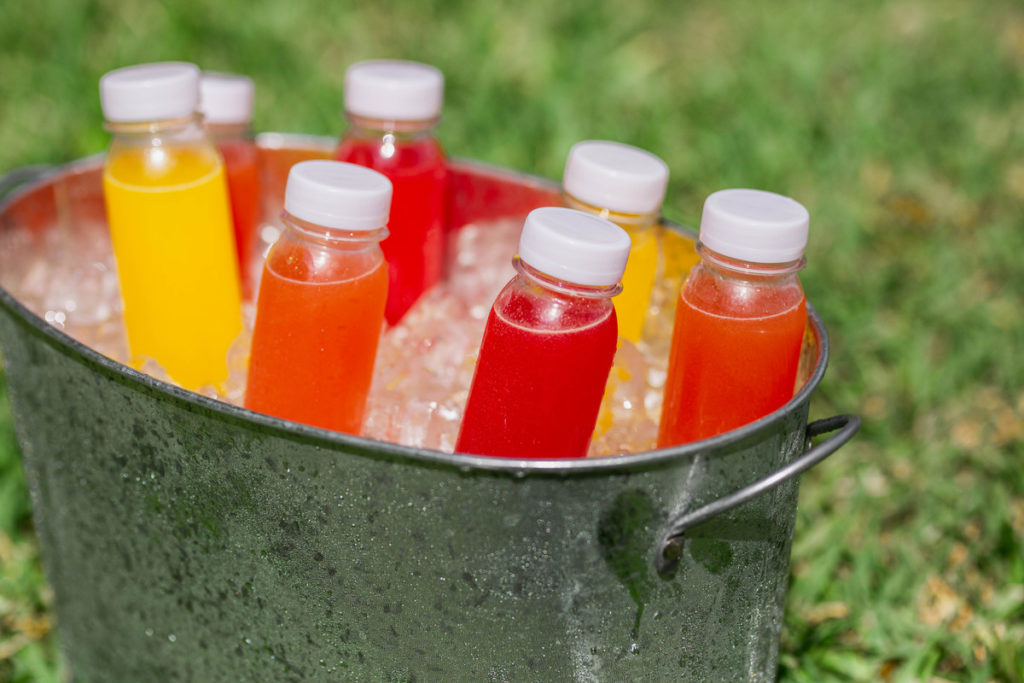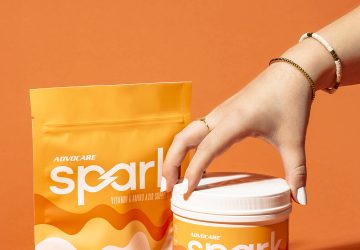
We all experience days of high demand that feel like we have to be on the go all day. Sometimes we feel like we are on a racetrack with no finish line in sight. Then you may drink your favorite energy drink: it can often serve as a pick-me-up once the various ingredient effects kick in. Energy drinks can help give us that extra little boost we need to make it through a hectic morning, spectating at your child’s all-day basketball tournament or when you need a push to get through a boring online meeting. There can be several different reasons why someone reaches for an energy drink – mainly though, it is to resist fatigue and help you perform at your optimal level.
There are many different types of energy drinks from the traditional cup of coffee, with sugar and a little cream to caffeinated vitamin mixes that can be added to water. In this blog, we will explore what makes many energy drinks effective.
The National Center for Complementary and Integrative Health defines an energy drink as a “product that increases energy and enhances mental alertness and physical performance.” In fact, next to multivitamins, energy drinks are the most popular dietary supplement consumed by young Americans.(1) Most energy drinks are formulated to give the desired effect of supporting an energy boost and increased mental focus. What are some of the common elements?
Caffeine
Caffeine works by competitively binding to the adenosine receptors in the brain, which blocks the cells in the brain from sensing adenosine. As a result, instead of slowing down or feeling fatigued because of adenosine levels, cellular activity speeds up. Caffeine acts as a central nervous system stimulant, which leads to the feeling of alertness. Caffeine sensitivity is different for everyone, and too much caffeine can increase your heart rate and blood pressure, interrupt your sleep, and cause jitters. Although there are no FDA regulations on the amount of caffeine an average person could safely consume in a day, most experts recommend a maximum of about 400 milligrams of caffeine a day.
To give you a frame of reference, an 8 oz. cup of drip brewed coffee usually contains about 80 – 135 milligrams of caffeine and a can of soda has about 40 milligrams. Some energy drinks contain as much as 250 milligrams or more of caffeine. When drinking energy drinks, it is important to monitor your caffeine intake and remember many factors determine how an individual metabolizes caffeine.
B Vitamins
Some energy drinks also contain a variety of B vitamins (typically B6, B12, B3) that are important contributors to cellular function. They help the body convert food into energy (metabolism), create new blood cells, and maintain healthy skin cells, brain cells, and other body tissues. Contrary to how they are often positioned, B vitamins on their own do not necessarily produce energy. B vitamins are involved in energy production, but do not provide energy directly. Only food provides “energy” in the form of calories from carbohydrates, proteins and fats. B vitamins help convert dietary energy into adenosine triphosphate (ATP), which is the form of energy the body uses.
Taurine and Guarana
Taurine is a conditional amino acid that has many functions in the body. In some studies, taurine has been shown to help remove metabolic by-products that may be associated with the onset of fatigue. In some energy drinks, taurine combined with caffeine has been shown to improve mental focus. Guarana is an additional botanical source of caffeine. In some instances, guarana seeds may contain 4 to 6 times more caffeine equivalent than coffee beans.
Not all energy drinks are created equal. When selecting an energy drink, it is important to be cautious about the amount of sugar as well as caffeine content. The World Health Organization (WHO) recommends limiting added sugar to 5% of daily calories, which is 25 grams per day for a 2,000 calorie diet. According to a recent survey, the average energy drink contains about 23 grams of added sugar or more in a single serving. Furthermore, because this excess added sugar is usually in liquid form, it can rapidly promote weight gain and significant surges of insulin in order to help keep blood sugar stable.
Energy drinks can be a quick way to fight fatigue, but don’t shy away from trying some of these tips as well:
Take a quick walk. It may seem obvious, but walking helps to increase blood flow and oxygen throughout the body. It can also increase levels of cortisol, epinephrine, and norepinephrine which are hormones that can help increase the feeling of alertness.
Take a power nap. If you can manage to fit it in, take a 15 to 20 minute power nap. Most experts agree that if you want a quick burst of alertness and vigor, take a nap. Just make sure to set your alarm to ensure you don’t oversleep.
Eat a nutritious snack. Most people grab a simple carb like a candy bar, cookies or a soda, instead, try grabbing some raw nuts like almonds or walnuts. Nuts are great for cardiovascular health and are packed with nutrients to promote energy.
Energy drinks may not be for everyone, but with 90 percent of the country consuming caffeine in one form or another every day, it is clear that Americans need healthy ways to increase energy. If you decide to try an energy drink, what will you look for on the label?
Citations:
- (2020). Retrieved 6 June 2020, from https://www.nccih.nih.gov/health/energy-drinks
The above article is educational information only and is not intended or approved to be used as advertising for the promotion of AdvoCare products. Check with your healthcare provider before making any changes to your health or fitness routine.

Lauren Horton, PhD.
Dr. Lauren Horton is passionate about moving patient care forward through research. As a Division Research Director, she is at the forefront of groundbreaking studies and innovation. Her dedication to advancing knowledge and solving complex problems has led to her pivotal role in shaping the future of patient care in the healthcare industry.
Dr. Horton leverages her deep insights and knack for communicating complex ideas in an accessible way to educate and engage a global audience. In her spare time, she is an avid advocate for health and wellness, dedicated to making a positive impact on the world. She believes that knowledge is a powerful tool for change and strives to empower others with the information and inspiration needed to effect meaningful transformation.
Dr. Horton loves to help improve the quality of life of those around her. She has helped men and women from all over the country discover how small steps each day can lead to huge strides towards living a healthier lifestyle.
Dr. Horton holds a BS in biology from Rust College, a MS in health economics and outcomes research from Xavier University and a PhD in biomedical science from Morehouse School of Medicine and completed her post-doctoral studies at the University of Pennsylvania.




